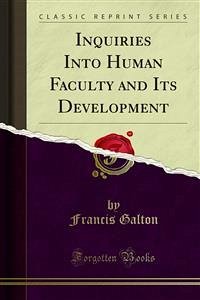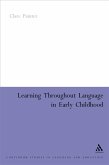It is my hope that this book will be read as a companion-volume to "Psychology and Parenthood," it being designed to amplify and supplement that earlier work. Its general aim, accordingly, is to present additional evidence in support of the central doctrine of "Psychology and Parenthood,"—namely, that, in view of the discoveries of modern psychology with regard to individual development, the mental and moral training of children by their parents ought to be begun earlier, and be carried on more intensively, than is the rule at present. But whereas in "Psychology and Parenthood" the emphasis was chiefly on the importance of early mental training, the chief concern of the present book is to demonstrate the importance of early training in the moral sphere.
Everybody, of course, is more or less aware that lifelong character defects may result from parental neglect to develop in children such qualities as unselfishness, self-confidence, and self-control. But few really appreciate that, by this neglect, children are burdened with handicaps which, persisting into adult life, may imperil not alone the winning of success and happiness, but health itself. And, among parents, comparatively few are sufficiently alert to the danger signals giving warning that such handicaps of perhaps catastrophic significance are being needlessly imposed on their children. Eccentricities of behaviour in children—such as jealousy and sulkiness—are too often ignored as being of no particular account, or are sadly misinterpreted by parents, with perhaps dire consequences to the children's whole careers.
These eccentricities and their possible consequences, these danger signals and handicaps, form in the main the subject-matter of the pages that follow. Desiring the book to be helpful to as many people as possible, I have been careful to avoid writing in any technical scientific way, and have tried to be simple and concrete. For this reason many illustrative cases from real life are given, my belief being that I could thus present most convincingly the truly remarkable facts with which the successive chapters have to deal. The result, I sincerely trust, will be to contribute in some degree to save children from the handicaps in question, and to assist adults now afflicted with any of these handicaps to overcome them.
In large part, this book has already appeared in the columns of several magazines. To the editors of these magazines—The Century Magazine, Good Housekeeping Magazine, McClure's Magazine, Harper's Bazar, Every Week, and The Mother's Magazine—I owe grateful acknowledgment for the opportunity to acquaint their readers with the discoveries and theories herein set forth. I am also under a debt of gratitude to numerous psychological and medical friends for advice and information. And, as in the case of all my previous books, I am particularly indebted to my wife for inspiration, encouragement, and innumerable helpful suggestions.
Everybody, of course, is more or less aware that lifelong character defects may result from parental neglect to develop in children such qualities as unselfishness, self-confidence, and self-control. But few really appreciate that, by this neglect, children are burdened with handicaps which, persisting into adult life, may imperil not alone the winning of success and happiness, but health itself. And, among parents, comparatively few are sufficiently alert to the danger signals giving warning that such handicaps of perhaps catastrophic significance are being needlessly imposed on their children. Eccentricities of behaviour in children—such as jealousy and sulkiness—are too often ignored as being of no particular account, or are sadly misinterpreted by parents, with perhaps dire consequences to the children's whole careers.
These eccentricities and their possible consequences, these danger signals and handicaps, form in the main the subject-matter of the pages that follow. Desiring the book to be helpful to as many people as possible, I have been careful to avoid writing in any technical scientific way, and have tried to be simple and concrete. For this reason many illustrative cases from real life are given, my belief being that I could thus present most convincingly the truly remarkable facts with which the successive chapters have to deal. The result, I sincerely trust, will be to contribute in some degree to save children from the handicaps in question, and to assist adults now afflicted with any of these handicaps to overcome them.
In large part, this book has already appeared in the columns of several magazines. To the editors of these magazines—The Century Magazine, Good Housekeeping Magazine, McClure's Magazine, Harper's Bazar, Every Week, and The Mother's Magazine—I owe grateful acknowledgment for the opportunity to acquaint their readers with the discoveries and theories herein set forth. I am also under a debt of gratitude to numerous psychological and medical friends for advice and information. And, as in the case of all my previous books, I am particularly indebted to my wife for inspiration, encouragement, and innumerable helpful suggestions.









